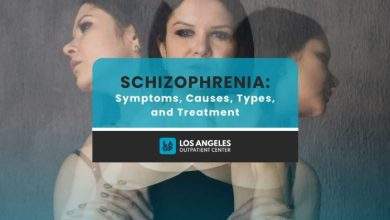
Long-term care decisions rarely come with enough time to research properly. Families suddenly need to locate a Medicaid nursing home that provides quality care, accepts their loved one’s insurance, and has an available bed.
Florida has hundreds of licensed nursing homes, but not all participate in the Medicaid program.
Finding nursing homes that accept Medicaid requires understanding how the system works, what to look for, and where to search.
How Florida Medicaid Covers Long-Term Care
Three Programs Serve Different Needs
Florida Medicaid offers three distinct programs for long-term care. Each covers different services and operates under different rules.
- Institutional Nursing Home Medicaid pays for full-time skilled nursing facility care. This program is an entitlement, meaning anyone who meets eligibility requirements will receive coverage. Florida Medicaid covers room and board, nursing care, medications, medical supplies, and therapy services in licensed nursing homes.
- Statewide Medicaid Managed Care Long-Term Care (SMMC-LTC) provides home and community-based services. This program helps people receive care at home, in assisted living facilities, or in adult foster care settings. The care program operates through managed care organizations rather than direct state payment.
- Regular Medicaid (MEDS-AD) offers limited long-term care services like personal care assistance or adult day care. This program works for people who need some help but don’t require a nursing facility level of care.
Who Qualifies for Nursing Home Medicaid
Florida Medicaid eligibility depends on both medical need and financial circumstances. The deciding agencies are:
- The Department of Elder Affairs: Determines whether someone needs a nursing home level of care
- The Department of Children and Families: Decides whether someone meets financial requirements.
Medical eligibility requires the following:
- Nursing facility level of care determination
- Inability to perform activities of daily living safely
- Bathing
- Dressing
- Eating
- Toileting
- Mobility
- The need for skilled nursing supervision or specialized services
A formal assessment evaluates physical abilities, cognitive function, and care requirements.
Financial eligibility in 2025 requires:
- Monthly income up to $2,901 for single applicants
- Countable assets under $2,000
- Florida residency and citizenship
Applicants over the income limit can still qualify using a qualified income trust. This trust holds excess income and ensures eligibility while allowing payment to the nursing home.
Where to Search for Florida Nursing Homes
Official State Resources
The Agency for Health Care Administration (AHCA) licenses and regulates all Florida nursing facilities. AHCA operates Florida Health Finder, an online search tool that lists every licensed nursing home in the state.
Medicare’s Care Compare Tool
The Centers for Medicare and Medicaid Services operates Nursing Home Compare at medicare.gov. This national database provides quality ratings, inspection results, staffing levels, and health inspection details for every certified nursing home.
The five-star rating system evaluates health inspections and violations, staffing levels and turnover, and quality measures like pressure ulcers and falls.
Jacksonville and Northeast Florida Options
When searching by location, consider distance from family members who will visit, proximity to doctors who currently treat the patient, accessibility via major roads, and nearby hospitals for emergencies. Some Jacksonville nursing homes maintain waiting lists for Medicaid beds.
What Families Need to Know About Medicaid Acceptance
Not All Beds Accept Medicaid
Many Florida nursing homes operate as “dual certification” facilities. They accept both Medicare for short-term rehabilitation and Medicaid for long-term care. However, facilities can designate which beds qualify for which program.
Medicaid Pays Less Than Private Rates
Florida Medicaid reimburses nursing homes at rates significantly below private pay charges. This funding gap explains why some facilities limit Medicaid beds or prefer private-pay residents.
Medicaid residents contribute toward their care. Recipients must pay nearly all their income to the nursing facility, keeping only a $160 monthly personal needs allowance. Medicaid covers the remaining costs of care.
Questions to Ask Before Admission
1. Confirm Medicaid Participation Details
Call facilities directly rather than relying on directory listings. Online databases update slowly and may show outdated information.
Essential questions include:
- Do you currently have Medicaid-certified beds available?
- Is there a waiting list for Medicaid beds?
- Do you require private pay before accepting Medicaid?
- What happens if someone runs out of money after admission as private pay?
Get answers in writing when possible.
2. Verify Specialized Care Capabilities
Not all nursing homes provide the same care services. Some facilities handle complex medical needs better than others.
Ask about memory care units for dementia patients, ventilator or feeding tube management, wound care capabilities, physical and occupational therapy availability, and on-site physician services. Facilities that accept Medicaid must provide medically necessary services, but quality and staffing levels vary significantly.
3. Review Inspection History
AHCA conducts annual inspections of all licensed nursing homes. Inspection reports document violations, deficiencies, and corrective actions.
Review recent surveys for health and safety violations, staffing shortages, medication errors, resident complaints, and repeated violations showing patterns.
Minor violations appear at nearly every facility. Focus on serious deficiencies involving actual harm to residents or systemic problems.
The Look-Back Period Creates Planning Challenges
Five Years of Financial Transactions Matter
Florida Medicaid examines 60 months of financial history before a Medicaid application date. Any gifts, asset transfers, or sales below fair market value during this look-back period trigger penalties.
The penalty calculation divides the total value of improper transfers by Florida’s monthly nursing home rate. The result determines how many months the applicant remains ineligible for Medicaid coverage despite meeting all other requirements for Medicaid.
Medicaid Planning Reduces Penalties
An elder law attorney can review financial records before applying, identify potential problems, and develop strategies to minimize penalties. Even after problematic transfers occur, legal techniques sometimes reduce ineligibility periods.
Early Medicaid planning creates more options. Families who anticipate future nursing home needs years in advance can structure finances to protect assets while maintaining future Florida Medicaid eligibility.
Assisted Living Versus Nursing Home Care
Medicaid Coverage Differs by Setting
Florida Medicaid covers nursing home care as an entitlement for everyone who qualifies. Assisted living through the SMMC-LTC waiver program has limited capacity and waiting lists.
Assisted living facilities provide:
- Housing, meals, and medication management
- Personal care assistance
- No skilled nursing services or 24-hour medical supervision
Medicaid waiver programs cover care services in assisted living but don’t pay for room and board costs.
Level of Care Determines Options
The level of care assessment determines which program applies:
- Assisted living candidates: Need help with daily activities but don’t require skilled nursing
- Nursing facility candidates: Need frequent medical intervention or extensive mobility assistance
Someone who doesn’t need nursing home level of care won’t qualify for institutional Medicaid regardless of preference.
Medicare Versus Medicaid for Nursing Homes
Medicare Covers Rehabilitation, Not Long-Term Care
Medicare pays for short-term skilled nursing care following hospitalization. Coverage requires a qualifying three-day hospital stay and admission to the nursing facility within 30 days of hospital discharge.
Medicare coverage breakdown:
- Days 1-20: Fully covered by Medicare
- Days 21-100: Daily copayment required
- After day 100: Coverage ends completely
Medicare doesn’t cover custodial care or long-term nursing home stays.
Many Residents Transition from Medicare to Medicaid
A common pattern involves hospital discharge to a nursing home for rehabilitation. Medicare covers the first few weeks. As therapy progresses, healthcare providers assess whether the patient can safely return home.
When returning home isn’t realistic and long-term care becomes necessary, families must transition from Medicare to either private pay or Medicaid. This transition point creates urgency for Medicaid applications.
Protecting Assets While Qualifying for Medicaid
Not Everything Must Be Spent Down
Medicaid’s asset limit seems harsh at first. Two thousand dollars in countable assets leaves little margin for emergencies. However, exempt assets don’t count toward the limit.
Protected assets include:
- The home where the applicant lives (up to $731,000 in equity as of January 1, 2025)
- One vehicle of any value
- Personal belongings and household goods
- Irrevocable pre-paid funeral contracts
- Life insurance with combined face value under $2,500
Married couples receive additional protections through the Community Spouse Resource Allowance.
Legal Strategies Protect More
Elder law attorneys use various techniques to protect assets while maintaining Medicaid eligibility. These strategies work within Florida law and include methods like spousal transfers and converting countable assets to exempt assets.
Attempting these strategies without legal guidance creates risks. Improper transfers trigger penalty periods.
When to Contact an Elder Law Attorney
Families who plan years in advance have far more options than those applying during a crisis. Waiting until the nursing home admission happens limits available strategies dramatically.
Berg Bryant Elder Law Group serves families throughout Northeast Florida who need help finding nursing homes that accept Medicaid, applying for benefits, or protecting assets while meeting eligibility requirements.




